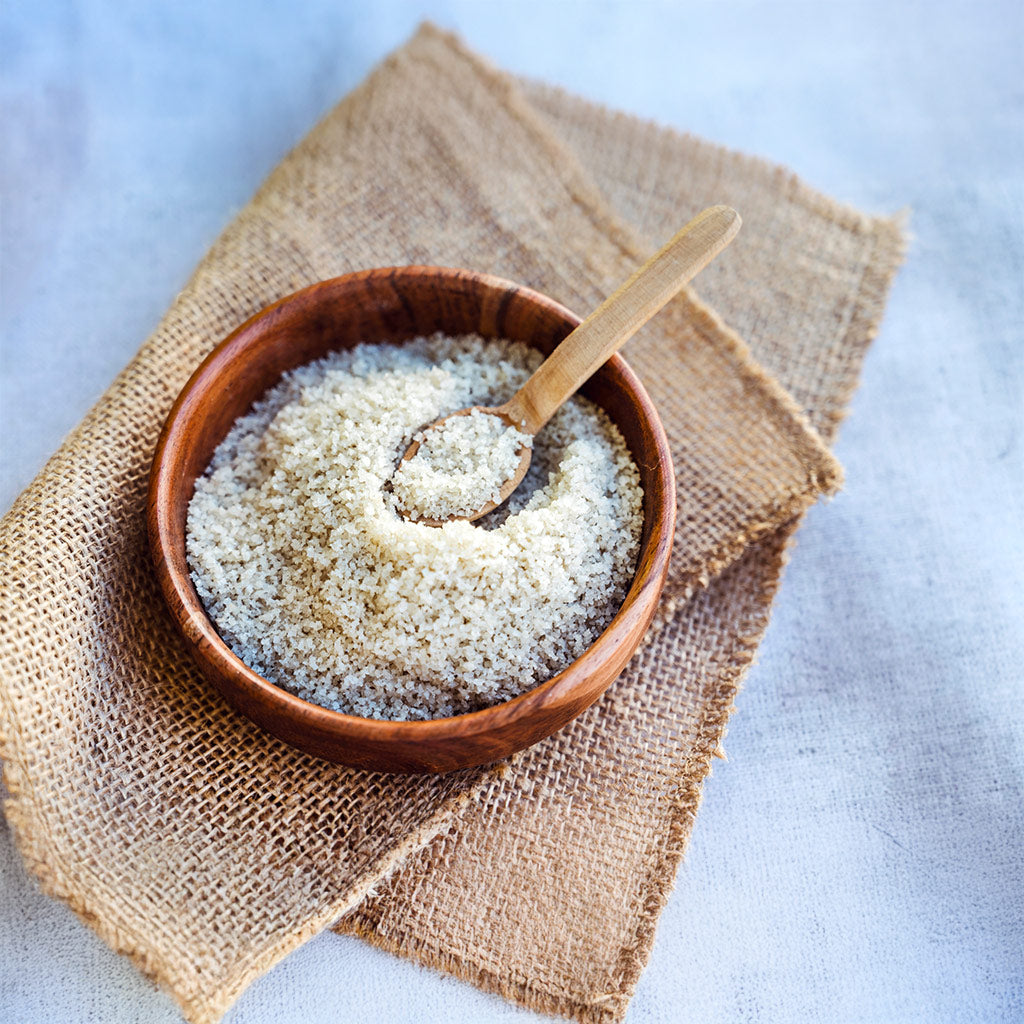Forget fluorescent lights and limp canapés. On 16 October, the real food-system chat happens outdoors — between garden beds, compost bays and a dinner grown five metres from your chair. Market Farms at the Edge is Pocket City Farms’ after-hours salon with Regen Sydney: sleeves up, plates down, and a circle of locals “stirring the pot” on how Sydney builds a regenerative food future.

Location
Address: 31A Mallett St, Camperdown NSW 2050
Website: pocketcityfarms.com.au
Event page (Humanitix): Market Farms at the Edge: Pathways to Regenerative Food Futures
Dates
Next Event: Thursday 16 October 2025, 5:00 pm – 8:45 pm AEDT
Frequency: Annual (Global Donut Day program)
Duration: One evening
Price
Ticketed event: see pricing on Humanitix.
Availability: Limited capacity; online booking essential.
The BioHax take
This isn’t a beige conference. It’s a working urban farm that smells like lemon myrtle and fresh mulch. Warm-up with optional volunteering in the market garden, sit down to a seasonal plant-based dinner grown on site, then lean into PCF’s impact story premiere. Regen Sydney’s Pete Dowson drops intel from overseas regen hubs before everyone circles up to literally and figuratively stir the pot. Intimate, useful, and deliciously local.
Who it’s for
-
Urbanites who prefer ideas with dirt under their nails
-
Regen/food-system geeks chasing substance over slides
-
Educators, community builders and curious neighbours
-
Teams looking for grounded sustainability inspo
-
Anyone who believes cities should grow food — not just consume it

Photo Credit: Pocket City Farms
What’s on offer
-
5:00–7:30 pm: Optional volunteering with the PCF crew (separate reg; limited spots)
-
6:30–7:30 pm: Farm-to-table dinner + informal networking (tour for early arrivals at 6:30; dinner 7:00)
-
7:30–7:45 pm: Pocket City Farms impact story premiere
-
7:45–8:15 pm: Horizons thinking with Pete Dowson (moderated by Emily Rowland)
-
8:15–8:45 pm: “Stirring the Pot” audience circle
Partners: Co-organised by Pocket City Farms and Regen Sydney, powered by volunteers.
About Pocket City Farms
Pocket City Farms (PCF) is a registered charity, social enterprise and fully operational market garden on a former bowling green in Sydney’s inner west. Founded in 2012 by Emma Bowen, Michael Zagoridis and Karen Erdos, PCF reconnects people to fair food and regenerative agriculture through hands-on education for schools, businesses and communities. Vision: people connected to regenerated environments and fair food. Purpose: empower communities to improve the natural environment, tackle food insecurity and take action on climate change.
Sustainability snapshot
Organic, regenerative and human-scale: minimal till, covered soils, cover crops, heirloom seeds, zero herbicides/fungicides, companion planting, manual tools (no tractor), local waste streams for mulch, food scraps to worm castings, seasonal/climate-fit crops, biodiversity by design.
Frequently asked questions
Is Pocket City Farms a community garden?
No. It’s a fully operational organic market garden managed by the PCF team. Produce is sold, donated and used to connect the community with local, fair food and regenerative agriculture. There are no individual plots; get involved via community volunteer sessions.
What farming methods do you use?
Organic and regenerative principles: minimise tillage; keep soil covered with plants or mulch; use cover and green-manure crops instead of synthetic fertilisers; avoid monocultures; turn restaurant waste into worm castings; zero herbicides and fungicides; prioritise natural insect control like companion planting and predator refuges; use only organic-approved soil amendments; reuse local waste streams such as coffee chaff and woodchip; grow seedlings on site; save seeds and prioritise heirloom varieties; rotate crops; and grow seasonal, climate-appropriate foods. Farming is done entirely by hand using tools and a Jang seeder, supported by volunteers, school groups and businesses.
What do you grow?
Seasonal, climate-fit crops chosen for yield, time in ground and harvest effort. This includes leafy greens like amaranth, kale, broccoli leaf and mustard; alliums such as spring onions, purple shallots and leeks; salad mixes; root vegetables including beetroot, radish and carrots; eggplant, broccolini and kohlrabi; tomatoes, chilli, annual herbs, edible flowers and a range of perennial herbs. There’s also a community food forest with citrus, strawberry guavas, finger limes, lemon myrtle and more for locals to forage freely.
Where does your produce go? Can I buy it?
Yes. Three ways:
• Custom vegetable boxes, harvested to order weekly
• Camperdown Organic Buyers Group (set boxes), collected on Thursdays
• The honesty stall at 31A Mallett St for pay-what-you-can produce.
Restaurants and businesses can also buy directly via email.
Is the soil safe to grow in?
Yes. The site underwent extensive testing down to 1.5 metres, including produce testing, and is confirmed safe and chemical-free.
Where is the farm and how do I get there?
31A Mallett St, Camperdown. A 15-minute walk from Newtown Station, or take buses 413, 436, 438, 439, 440, 480, 483 or M10 from Central to Bridge Road. Two-hour street parking is monitored, or use Secure Parking on Grose St.
When are you open?
Thursdays 8–10 am and some Saturdays 8–10 am for volunteer sessions. Farm tours run on the first Saturday of the month. Outside these times, email ahead to arrange a visit. The site is co-located with Camperdown Commons; when Commons is closed, only the food forest is accessible.
What is the restaurant on-site?
The restaurant is run by Camperdown Commons and offers indoor and outdoor dining, as well as community spaces for hire.
When is the restaurant open?
Opening hours are listed on Camperdown Commons’ website.
When or how can I visit? How can I get involved?
Join community volunteer sessions, working bees, chicken care, school excursions, work team retreats, farm tours, or shop online for produce. You can also join the Camperdown Organic Buyers Group. During Commons’ open hours, you’re welcome to wander the site.
Can I pop by for advice on my garden?
Not casually. Come to a volunteer session or monthly farm tour, which includes Q&A time and sliding-scale tickets (including a free option).
Can I book my school group?
Yes. PCF has extensive experience with school visits. Details are on their website.
Can I book my work team or organisation?
Yes. Team retreats are popular and tailored to each group.
What impact do the team retreats have?
Retreat fees fund volunteer sessions, community meals, school education, the farm incubator program, and the honesty stall. They also support PCF’s broader vision, including the forthcoming “Farm in a Box” toolkit.
Can I bring my food scraps for compost?
No. PCF already processes all farm and restaurant waste. Businesses can try Compost Connect; households can use ShareWaste or local FOGO services.
Can I run my workshop, yoga class or event at the farm?
Hire spaces via Camperdown Commons. For PCF collaborations on sustainability or food events, email info@pocketcityfarms.com.au.
Can I host a birthday, wedding or event at the farm?
Contact Camperdown Commons for hire. For PCF add-ons like produce in your menu, plant favours, photography, tours or volunteering, email info@pocketcityfarms.com.au.
Can I take photos or videos at the farm?
Personal and social media photography is welcome. Commercial, wedding or professional shoots require booking and fees via the website.
Do you offer fruit picking?
No seasonal fruit picking is available. The food forest on Mallett St is free for community foraging.
Can I help with or visit the chickens?
Yes, through the Chicken Carers program. Volunteers visit twice daily to check food, water and collect eggs. Email chris@pocketcityfarms.com.au for inductions and shifts.
What is Pocket City Farms and how did it start?
A grassroots DGR-registered charity founded in 2012 by Emma Bowen, Michael Zagoridis and Karen Erdos. The first farm was opened on the former Camperdown Bowling Club. The origin story is on their website.
Why farm in the city?
With 90% of Australians living in cities, urban farms boost food security, connection to food, urban greening, soil regeneration, community cohesion, mental health, biodiversity and resilience.
Who owns and manages the farm?
PCF manages the farm and programs on land licensed from partners, created with Canterbury-Hurlstone Park RSL and Inner West Council.
Do you have jobs available?
Occasionally. Roles and internships are posted on the Jobs page and social media.
I want to start something like PCF, can you help?
PCF is developing a growth strategy and a “Farm in a Box” toolkit. Email jacqui@pocketcityfarms.com.au.
Are there more farms beyond Camperdown?
Not yet. PCF is working on it and welcomes suggestions for new sites.
Related Reads:
→ Sleep Under the Stars Barangaroo 2025
→ Sculpture by the Sea Bondi 2025
→ Halloween Family Fest Entertainment Quarter 2025
→ Sydney Ceramics Market Carriageworks 2025
→ Waterloo Spring Festival 2025
Article originally published: 12 October 2025, by Editor







